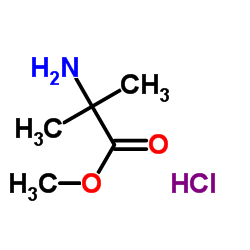| 结构式 | 名称/CAS号 | 全部文献 |
|---|---|---|
 |
2-氨基异丁酸甲酯盐酸盐
CAS:15028-41-8 |
| 结构式 | 名称/CAS号 | 全部文献 |
|---|---|---|
 |
2-氨基异丁酸甲酯盐酸盐
CAS:15028-41-8 |